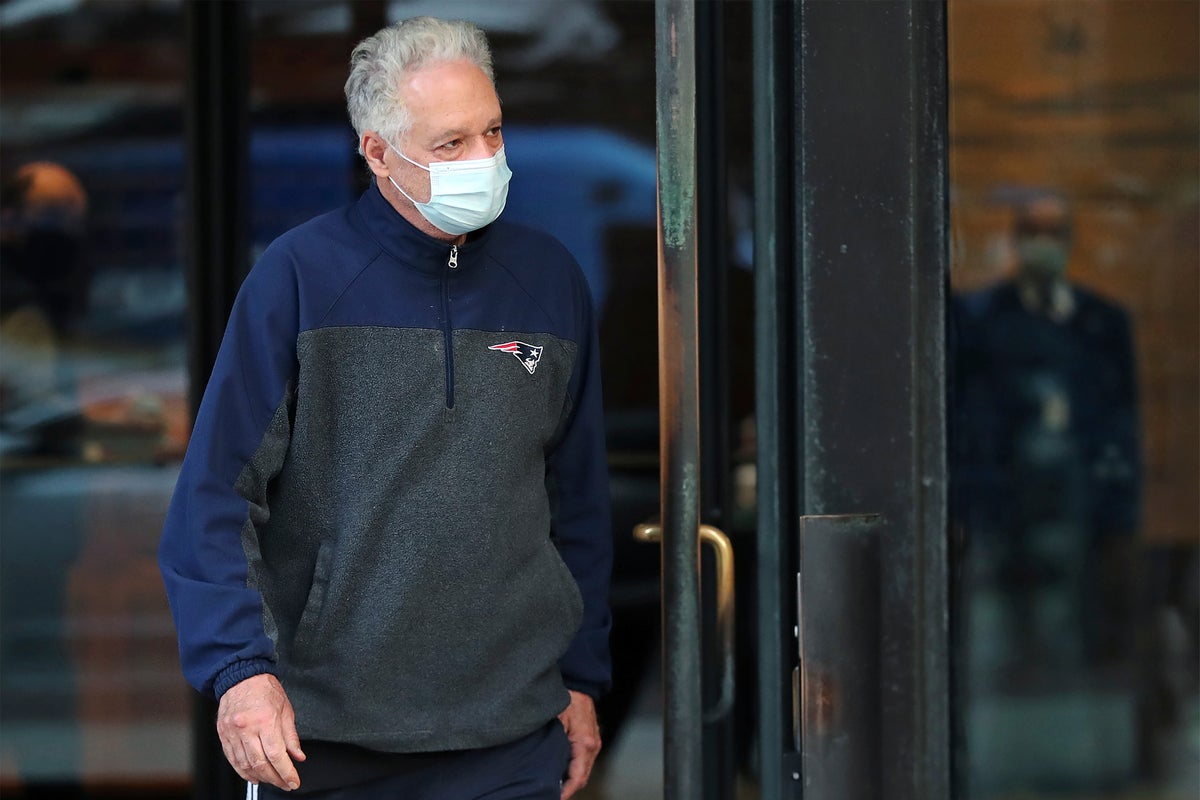
A former Harvard fencing coach was acquitted Wednesday of charges that he accepted more than $1.5 million in bribes in exchange for designating a wealthy businessman's two sons as recruits to help secure their admission to the elite university.
Jurors found Peter Brand not guilty of conspiracy and bribery charges more than three years after a newspaper reported that Brand sold his run-down home for an inflated price to the businessman, Jie “Jack” Zhao. Zhao, of Potomac, Maryland, who was also acquitted of the same charges.
The case came on the heels of the sprawling college admissions bribery scandal that resulted in the convictions of dozens of athletic coaches, wealthy businesspeople, TV actresses and other high-powered parents. While the allegations were similar, the Brand case was separate from those so-called “Operation Varsity Blues” prosecutions, which uncovered a scheme led by a corrupt admissions consultant to get kids into elite schools with rigged test scores and bogus athletic credentials.
Unlike many of the parents charged in the college admissions bribery scandal, prosecutors did not allege that the Zhao boys’ athletic credentials were fabricated or trumped up. And prosecutors said that the teens might have gotten into Harvard on their own merit. But prosecutors argued that Zhao wasn’t willing to take that risk.
Defense attorneys didn’t deny that Zhao paid too much money for Brand’s home or helped him out in other ways financially, but they said it had nothing to do with getting Zhao’s sons get into the school. They argued that Zhao bought the house as an investment and that the payments were loans to help out a good friend in financial need that were paid back when the coach inherited money from his late mother.
Defense attorneys said the Zhao boys were exceptional students and athletes — both ranked in the top 20 nationally as fencers in high school — who didn’t need any help getting into Harvard and excelled when they got there.
In his closing argument, Brand’s attorney called it an “alleged crime in search of a victim,” saying prosecutors provided no evidence the teens took slots for more qualified recruits. Attorney Douglas Brooks said that if Zhao wanted to bribe Brand, he could have done so with a bag of cash. Instead, Zhao purchased the home in his own name and paid Brand’s bills using his own checks.
“The government’s bribe theory makes no sense,” Brooks said. “There are fingerprints everywhere. It is the exact opposite of trying to cover everything up.”
Prosecutors alleged that Brand began taking bribes from Zhao amid personal money struggles. In exchange, Brand agreed to recruit Zhao’s sons to the fencing team to give them a leg up in the cut-throat admissions process, prosecutors said.
“His boys don’t have to be great fencers. All I need is a good incentive to recruit them,” Brand wrote in a 2012 message to another man that was shown to jurors. In another message, Brand wrote that Zhao’s older son would be his “no 1 recruit” as long “my future” is “secured.”
Federal authorities’ investigation into the alleged scheme was prompted by a 2019 Boston Globe story that revealed that Zhao brought Brand’s three-bedroom home in Needham, Massachusetts, for almost $1 million — nearly double the home’s assessed value at the time — before Zhao’s younger son was admitted to Harvard and joined Brand’s team. The sale was so bizarre that city assessor wrote in his notes at the time: “MAKES NO SENSE.” Zhao never lived in the home and sold it for a steep loss 17 months later.
Brand used the money from that sale to buy a $1.3 million condo in Cambridge and Zhao paid more than $150,000 to a high-end contractor Brand hired to renovate it, according to prosecutors. Zhao, the CEO of a telecommunications company, made a slew of other payments for Brand to help cover bills, his son’s college tuition and other expenses, prosecutors alleged.
“Zhao didn’t want to leave his sons’ admission to chance,” Assistant U.S. Attorney Mackenzie Queenin told jurors in her closing argument. “He wanted to grease the skids.”







